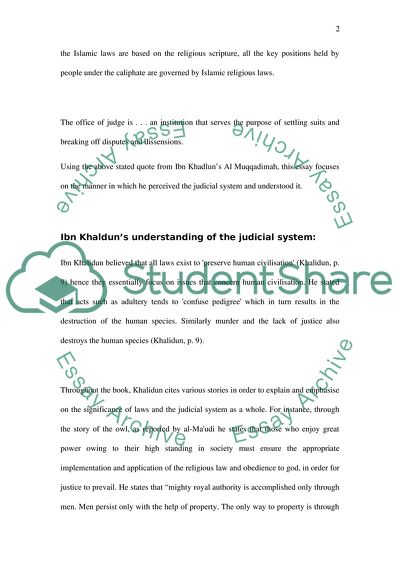Cite this document
(Ibn Khalduns Understanding of the Judicial Function Coursework Example | Topics and Well Written Essays - 1500 words, n.d.)
Ibn Khalduns Understanding of the Judicial Function Coursework Example | Topics and Well Written Essays - 1500 words. https://studentshare.org/social-science/1868749-ibn-khalduns-understanding-of-the-judicial-function
Ibn Khalduns Understanding of the Judicial Function Coursework Example | Topics and Well Written Essays - 1500 words. https://studentshare.org/social-science/1868749-ibn-khalduns-understanding-of-the-judicial-function
(Ibn Khalduns Understanding of the Judicial Function Coursework Example | Topics and Well Written Essays - 1500 Words)
Ibn Khalduns Understanding of the Judicial Function Coursework Example | Topics and Well Written Essays - 1500 Words. https://studentshare.org/social-science/1868749-ibn-khalduns-understanding-of-the-judicial-function.
Ibn Khalduns Understanding of the Judicial Function Coursework Example | Topics and Well Written Essays - 1500 Words. https://studentshare.org/social-science/1868749-ibn-khalduns-understanding-of-the-judicial-function.
“Ibn Khalduns Understanding of the Judicial Function Coursework Example | Topics and Well Written Essays - 1500 Words”. https://studentshare.org/social-science/1868749-ibn-khalduns-understanding-of-the-judicial-function.


